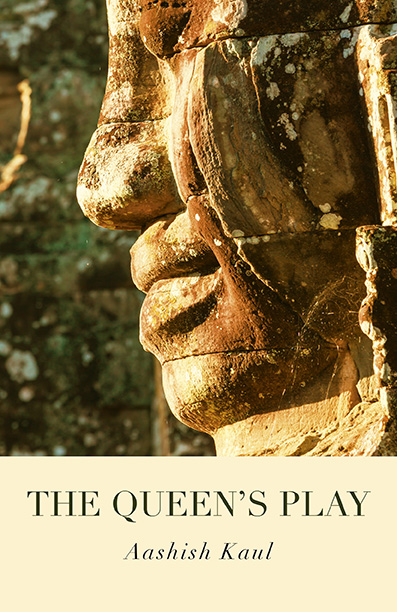Queen's Play, The
Writes the origin of chess into the narrative of The Ramayana, one of the two formative epics of ancient India.

Writes the origin of chess into the narrative of The Ramayana, one of the two formative epics of ancient India.
Writes the origin of chess into the narrative of The Ramayana, one of the two formative epics of ancient India.
Historical, Literary
In the second age of the world, a time of prehistory, a time of myth, Mandodari, queen of the demon king Ravana, invents chess to carve out a role for herself in a world where male, martial virtues are paramount. As a chess player, she can play at warfare; as queen, she can be the most potent warrior on the battlefield.
The Queen's Play attempts to write the origin of chess into the narrative cycles of the Ramayana, one of the two formative epics of ancient India.The cursory mention of a chess-like game in the Ramayana lore offers interesting parallels and openings between the game and the themes of the epic poem. At the centre of it is a queen, first entering and then growing from strength to strength to become the most powerful piece on the board, inventing a game which closely parallels the epic battle taking place not far from the royal palace, a battle which she is not permitted to join, a battle where she will lose her king. Foregrounding certain episodes from the vast tapestry of the epic, the novel develops new narrative variations that feed back into the classical text with freshly imagined material.
Click on the circles below to see more reviews
Best Books of the Year 2015-16 ~ Sunday Guardian
Exceptionally well written, highly original, inherently fascinating, The Queen's Play is a riveting novel. ~ Midwest Book Review
The Queen’s Play is rich in ideas, and is seductive reading. ~ Lisa Hill, ANZ LitLovers
The imagined invention of chess by Mandodari, the wife of King Ravana, one of the ultimate prototypes of evil in the Indian epic Ramayana, is at the centre of Aashish Kaul’s intriguing novel. The dare of this conceit played upon us by the author is as breathtaking as the act of disruption the queen herself crafts. The epic’s narrative fabric of stories within stories is sliced open to retrieve a little string from which Kaul can weave his own stories. . .The language is precise and use of metaphors disciplined and efficient. They add to the tonal quality of the narrative asking to be read and heard aloud. I read the book twice and I am sure I’ll read it again to enjoy the resonant prose. The book is meant to be reread. It demands slow reading to appreciate its carefully crafted prose and to think about the ideas it explores deftly. ~ Mascara Literary Review (Australia)
(Dream of Horses & Other Stories, A) The precisely realized yet dreamlike settings of Aashish Kaul's stories, the fastidious, melancholy sensibility of their no-longer-young narrators, lead us directly into the territory of late modernism, of Borges and Beckett and Nabokov. ~ J.M. Coetzee, Booker prize winning author and Nobel Laureate
It is the journey of the artist and the artist's examination of self that Kaul alludes to consistently in his fictions. . . . Kaul is a poet of space and silences, of absence and dream, a journeyman through text and the fictional experience. The lived is translated into the contemplated and is created in a brushstroke - such is the condition of the artist. His stories are like the Oneirocritica on the modernist urge and method, the dream of a dreamer who is aware of his dream. . . . ~ Christopher Cyrill, Southerly (Australia)